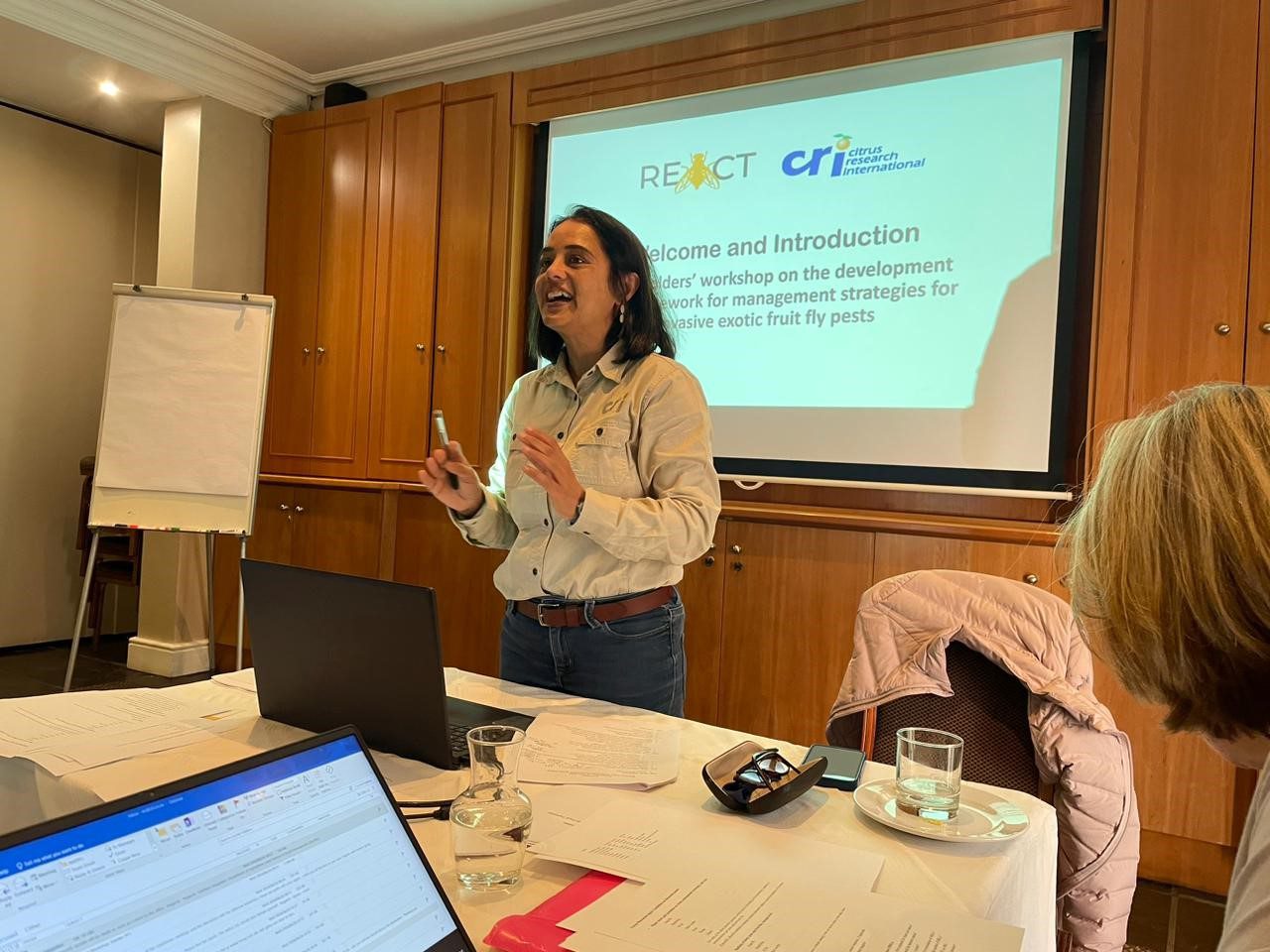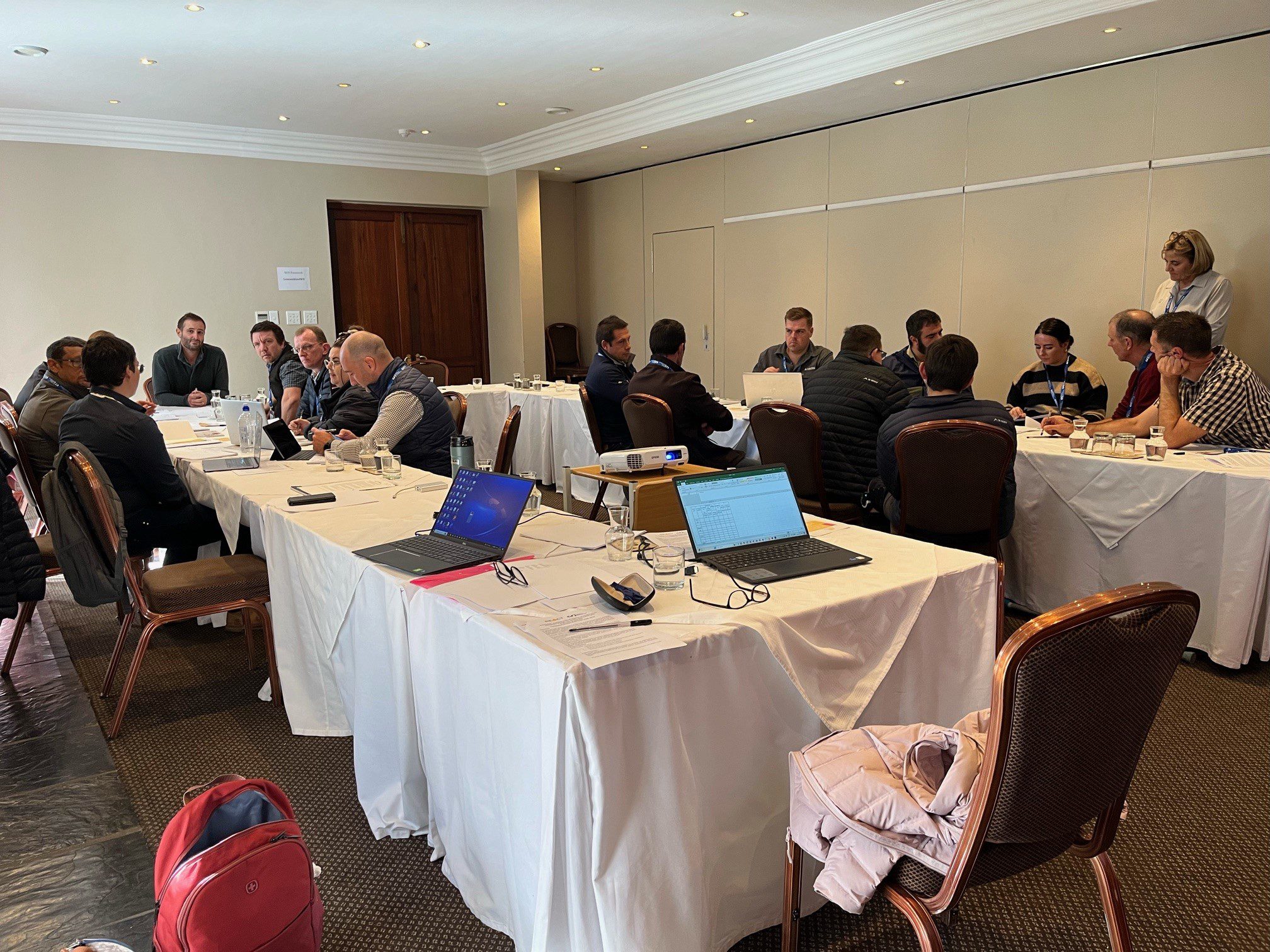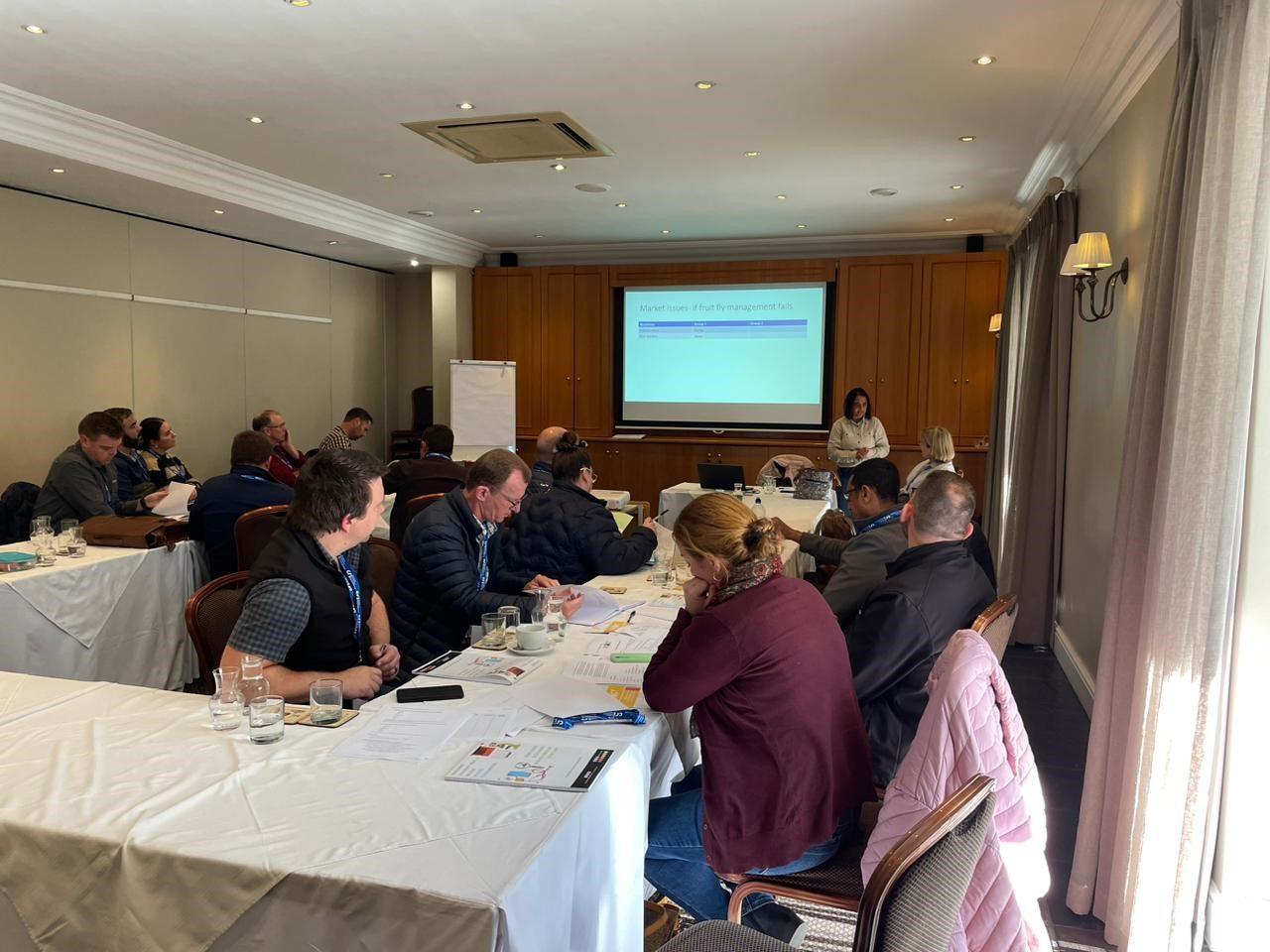





South Africa: Stakeholder Workshop on Management Strategies for Invasive Fruit Fly Pests
07 June 2024
A one-day consultation workshop was organized with stakeholders in the citrus industry in South Africa on Wednesday 26 June 2024 at Lemoenkloof Boutique Hotel, Paarl, South Africa.
The import and export of fresh commodities, the movement of people between countries, and changes in agricultural landscapes and the global climate are increasing the risk of the spread and introduction of invasive pests, including fruit flies and other organisms, into new areas.
Once these pests are detected, immediate management strategies must be implemented to eradicate them. If the pests establish themselves, long-term management strategies are required to suppress them. Both suppression and eradication actions have significant economic and environmental consequences. Bactrocera dorsalis (Bd) is an example of an invasive pest in South Africa. When Bd is detected in pest-free areas, rapid eradication actions are necessary. In areas where Bd is established, long-term suppression strategies are required.
In South Africa, Bd became established in the northern areas of the country in 2013 and to date, it still has a restricted distribution, being absent in most of the southern regions including the Western Cape Province. There are SIT operations on two other insect pests in parts of the Western Cape Province: Ceratitis capitata and Thaumatotibia leucotreta. This workshop focused on stakeholders who are in the Western Cape Province and offered a scenario where Bd is absent and SIT operations are ongoing on other pests.
The aims of the workshop were to (1) understand the challenges stakeholders face with fruit fly pests and other insect pests, (2) assess the perception of the impact of Bd invasion, (3) evaluate current fruit fly management strategies and (4) determine whether SIT would be an acceptable technology for combating Bd. An understanding of the impact of insect pests including fruit flies and the management strategies would enable the development of a framework for cost-benefit analysis model for SIT and alternative strategies.
The workshop aimed at understanding the challenges that stakeholders face with fruit fly and other insect pests, assessing the perception of the potential impact of Bd invasion, evaluating current fruit fly management strategies and determining whether SIT would be an acceptable technology for combating Bd. There were 16 participants in total. Participants were representatives of different stakeholder roles in the citrus industry: producers, packhouse managers, exporters and crop protection agents including SIT operators.
Stakeholders reported important challenges in the citrus industry due to fruit flies and other insect pests. Stakeholders reported fruit fly damage levels, albeit low (about 1%), at all nodes in the value chain from production to export. An outbreak of Bd in an area in the Western Cape Province with mixed fruit crops was perceived to potentially increase control measures and costs. With limitations in the number of insecticidal residues on fruit, stakeholders perceived that SIT could reduce residues in fruit. The workshop provided valuable inputs for a cost and benefit model for SIT and alternative strategies.
